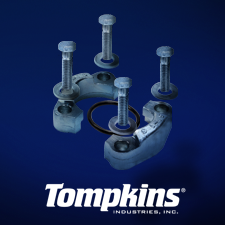Before You Hire Your Employees, Retain Them

This article’s title may imply that I have things backwards! Not really. The major point I want to make is that the most critical step in retaining employees really starts before you hire them.
Every hiring authority wants new employees to deliver. They are looking for attributes like productivity, results orientation, or a focus on profitability.
This means that we have to look at employment candidates as more than just resumes and interviews. We have to look at them as individuals, if you are to reduce turnover and not have to start the hiring cycle all over again, wasting time, money, and productivity. Some studies estimate that it costs a profit-draining 1.5 times the salary of each employee who has to be replaced. And that doesn’t take into account potential service interruptions and morale issues with other employees who take notice of the “revolving door.”
Turnover happens for a lot of reasons, but it doesn’t mean you can’t control some of them. Looking beyond the resume and the interview by using some of the critical assessment tools available can add to the success of your talent selection process, specifically identifying your employment candidate’s abilities, skills and their personal attributes (their personality). These should be the critical measures, long before you bring someone on-board, and regardless of the job position.
Elements of Good Hiring Practices
If candidate screening were automatic and effortless, there would be few hiring mistakes. But the evidence often shows otherwise - a disconnection between sound theory and actual practice. This occurs chiefly because of the traditional tools usually employed in talent selection.
Resumes represent a static list of skills and job duties, but cannot speak to how well the person performs, unsupervised or on a tight deadline. Reference checks can be tricky; first, because candidates naturally stack the deck in their favor with those who have only positive things to say; and second, companies are so wary of litigation that many may say little, if anything, that is useful in responding to you reference requests. Hiring authorities who pride themselves on being able to “read” people and go with “gut instincts” miss the fact that there is more to hiring than how a candidate presents themselves.
The typical interview questions, such as “Where do you see yourself in five years?" or “Why are you the right person for this job?" seem designed to encourage smooth talking instead of candid and critical self-evaluation. Many of the most important questions – those regarding the prospect’s essential nature, and the preferences and attitudes that make them an individual – often are not asked. These defining qualities are also essential for prospective employers, because they predict job performance and satisfaction. The more job performance-relevant information employers have, the greater the likelihood of building, and retaining, an engaged, productive workforce.
So then, how can employers get that information? What are the qualities that make for a good hire? Each job has its particular requirements, but just because someone is qualified on paper doesn’t mean they will be ideal for the job. Employers need to be clear about their needs and expectations for any given position up front – before the hiring process begins. A variety of measurements are necessary and they work together to create a good hire. These include and individual’s abilities, skills, and personality.
Personality and ability are complex qualities that cannot be adequately determined from an interview or by reading a resume. They require objective assessment. The professional assessment tools that are available today maximize person-job fit so that the individual hired is capable of doing – and is willing to do – the best job possible.
Professional assessment does not mean hours of training, or day-long job interviews. Assessments can be administered in as little as 20 minutes. The evaluation of assessment results you receive, most often, requires little or no special training to interpret.
Ability assessments evaluate capabilities such as mathematical and verbal aptitude, reasoning, critical thinking, and the ability to process information. Workplace personality assessments provide insights into qualities such as motivations, dependability, innovation, adaptability, and stress tolerance. Knowing a person’s work style helps ensure that the values of the individual and the organization are in line. It is also an early warning of potential derailers to success. For example; a person who prefers to work alone would probably not succeed in a job that entails a high level of teamwork or close supervision.
Your due diligence in seeking out and evaluating the assessment tools on the market should include the following, from whoever your current or potential assessment vendor is:
- Real-world, statistically validated and documented assessments
- Easy to administer (preferably on-line)
- Predicts job performance across all levels of work, from semi-skilled to executive
- Can be customized for the specific attributes you require in a position.
With the assessment tools available today, it makes sense to incorporate them into a hiring strategy. An objective and qualified hiring process translates into picking the right people for the job and lasting employees that reduces voluntary and involuntary turnover.
Howard Coleman is the principal of MCA Associates, a management consulting firm since 1986. MCA works with wholesale distribution and manufacturing clients that are committed to seeking operational excellence. MCA Senior Consultants provide idea leadership and implement continuous improvement solutions focused on business process re-engineering, inventory and supply chain management, sales development and revenue generation, information systems and technology, organizational assessment and development, and succession planning.
Contact: hcoleman@mcaassociates.com or 203-732-0603. Visit www.mcaassociates.com.












